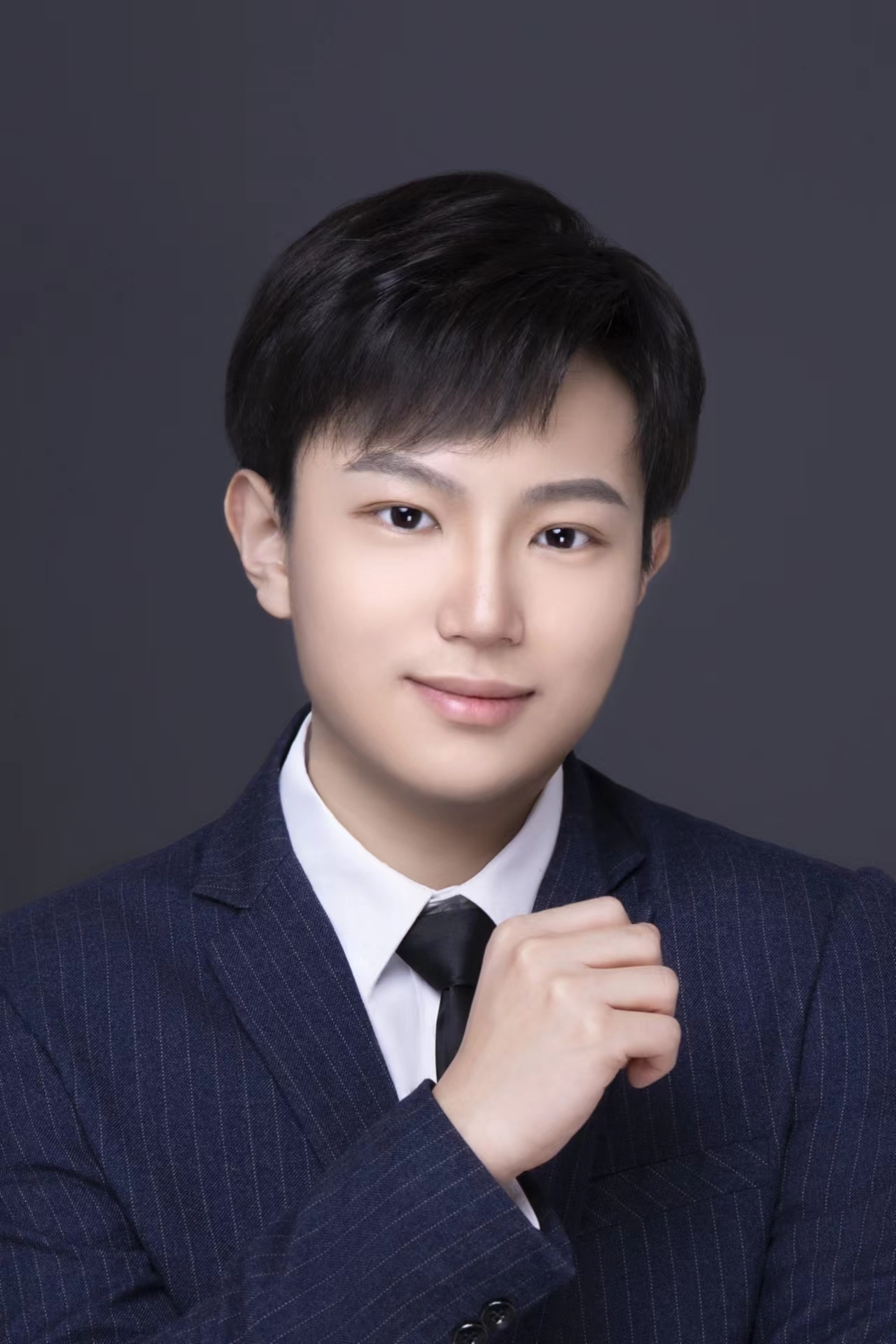
吴致远
个人简介
我是清华大学计算机科学与技术系的博士研究生 (GPA 3.90/4.00),师从李丹教授 (IEEE Fellow),王帅副研究员,陈力副研究员和高凯辉副研究员。在此之前,我在中国科学院计算技术研究所取得硕士学位(期间获得在校生最高荣誉),师从王煜炜高级工程师,孙胜副研究员和刘敏研究员。 曾获中国科学院院长奖、计算所所长特别奖,研究生国家奖学金 (多次),并入选国家级拔尖学生培养计划。
我的长期研究愿景聚焦于资源受限下的分布式智能计算架构,致力于设计和优化面向新兴AI负载的大模型推理系统,打造世界领先的算网融合AI服务引擎,实现分布式智算资源的统筹协同与普惠应用。
在科研成果方面,我以第一作者身份在TPDS,TMC,INFOCOM等CCF-A类顶级期刊与会议上发表多篇学术论文,部分成果曾入选ESI高被引论文,连续4个月位列同届会议论文受欢迎度榜单前2名,或衍生出十余种研究变体,产生了广泛的学术影响力。
在项目主持与参与方面,曾作为项目负责人主持教育部以及中国科学院的青年学生科研项目各1项,均已顺利结题。在企业合作项目中,我曾在华为2012实验室中央研究院的内网环境下主导了十万行代码级离散事件仿真引擎的跨版本迭代,完成了6大核心分布式模块的全链路部署与适配;参与开发的部分机制应用于华为商用AI开源框架MindSpore。
在学术共同体建设方面,我曾担任TMC、TPAMI、ICML等10余项顶级会议/期刊的技术程序委员会委员或审稿人,并受邀在知名高校与机构的学术活动中担任主讲人十余次,累计覆盖线上线下听众三万余人次。
学术论文
-
IEEE Transactions on Parallel and Distributed Systems (TPDS), 2024计算机系统结构,CCF-A类,同年仅发表162篇🏆 ESI高被引论文
-
IEEE International Conference on Computer Communications (INFOCOM), 2024计算机网络,CCF-A类🏆 连续四个月在IEEE Xplore中入选INFOCOM 2024受欢迎程度的前2名,INFOCOM会议论文集中最高排名3/1000+
-
IEEE Transactions on Mobile Computing (TMC), 2024计算机网络,CCF-A类🏆 连续两个月入选IEEE Xplore受欢迎论文榜单,最高排名前2%
-
Recursive Offloading for LLM Serving in Multi-tier NetworksIEEE Transactions on Mobile Computing (TMC), 2026计算机网络,CCF-A类
-
ACM Transactions on Intelligent Systems and Technology (TIST), 2024模式识别与智能系统,CAA-A类
-
IEEE/ACM Transactions on Networking (ToN), 2026计算机网络,CCF-A类,大修
-
IEEE/CVF Conference on Computer Vision and Pattern Recognition (CVPR), 2026人工智能,CCF-A类,在审
-
Journal of Computer Science and Technology (JCST), 2025中国科协推荐计算领域高质量科技期刊T1类
-
Re-architecting Personalized Federated Learning for Demanding Edge EnvironmentsAAAI Conference on Artificial Intelligence (AAAI), 2026人工智能,CCF-A类
-
IEEE Transactions on Mobile Computing (TMC), 2024计算机网络,CCF-A类
-
Annual Conference on Neural Information Processing Systems (NeurIPS), 2025人工智能,CCF-A类
-
International Conference on Network Protocols (ICNP), 2025计算机网络,THU-A类
-
FNBench: Benchmarking Robust Federated Learning against Noisy LabelsIEEE Transactions on Information Forensics and Security (TIFS), 2025信息安全,CCF-A类,在审
-
RADD: A Real-time and Accurate Method for DDoS Detection Based on In-Network ComputingIEEE International Conference on Communications (ICC), 2024通信,CIE-I类
-
NET-SM4: A High-performance Secure Encryption Mechanism Based on In-Network ComputingIEEE/ACM International Symposium on Quality of Service (IWQoS), 2025计算机网络,CCF-B类
-
Towards Efficient Secure Aggregation Based on In-Network ComputingIEEE/ACM International Symposium on Quality of Service (IWQoS), 2025计算机网络,CCF-B类,海报论文
-
Tackling Noisy Clients in Federated Learning with End-to-end Label CorrectionACM International Conference on Information and Knowledge Management (CIKM), 2024数据挖掘,CCF-B类,口头报告
-
Spirit Distillation: A Model Compression Method with Multi-domain Knowledge TransferInternational Conference on Knowledge Science, Engineering and Management (KSEM), 2021人工智能,CCF-C类,本科生成果
-
Logits Poisoning Attack in Federated DistillationInternational Conference on Knowledge Science, Engineering and Management (KSEM), 2024人工智能,CCF-C类,本科生成果
-
Peak-Controlled Logits Poisoning Attack in Federated DistillationDiscover Computing (DC), 2025数据挖掘,CCF-C类,本科生成果
奖项荣誉
-
中科院计算所所长特别奖 2024🏆 计算所最高荣誉,全所获奖共7人,其中硕士生仅1人
-
中国科学院院长奖 2025🏆 计算所获奖共7人,其中硕士生仅1人
-
研究生国家奖学金 2023🏆 计算所当届仅1人
-
研究生国家奖学金 2024
-
易方达金融科技新生奖学金 2023计算所网络研究部仅1人
-
中国科学院大学三好学生标兵 2024在学人数1%
-
北京市优秀毕业生 2025
-
中国科学院大学优秀毕业生 2025
科研项目
-
面向网络化业务流的高并发离散事件仿真引擎华为企业横向项目,项目研发
-
基于区块链的大规模分布式可信智能计算关键技术及应用国家重点研发计划项目,项目申请与研发
-
边缘智能中的端边设备协同计算方法研究国家自然科学基金面上项目,项目研发,已结题
-
基于联邦学习的云网边端智能调度与协同优化中国科学院计算技术研究所所创新课题,项目申请与研发,已结题
-
MindSpore网络模型与创新合作华为企业横向项目,项目研发,已结题
-
面向推荐场景的纵向联邦学习机制研究中国科学院大学生创新实践训练计划,项目负责人,已结题
-
基于特征图匹配知识蒸馏的语义分割研究教育部国家级大学生创新创业训练计划,项目负责人,当届首批优秀结题
-
复杂动态环境下无人机集群联邦学习安全聚合机制及鲁棒性研究国家自然科学基金企业联合基金重点项目,项目申请
-
安全高效联邦学习关键技术研究及验证国家自然科学基金企业联合基金重点项目,项目申请
-
多机器人协同制造中的自主智能与群体涌现国家重点研发计划项目,项目申请
-
6G网络分布式自智范式下的无线通信资源优化机制研究国家自然科学基金青年基金项目,项目申请
学术服务
期刊审稿人
- IEEE Transactions on Mobile Computing
- IEEE Transactions on Pattern Analysis and Machine Intelligence
- Information Fusion
- Pattern Recognition
会议技术程序委员会成员/审稿人
- International Conference on Machine Learning
- International Conference on Learning Representations
- Advances in Neural Information Processing Systems
- IEEE/CVF Conference on Computer Vision and Pattern Recognition
- AAAI Conference on Artificial Intelligence
- International Joint Conference on Artificial Intelligence
- ACM International Conference on Multimedia
科研观点
-
科研探索的三驾马车:战略、战术与热情中国科学院计算技术研究所 校友通讯
-
挣脱范式引力,洞察问题本源中国科学院计算技术研究所 官方微信公众号